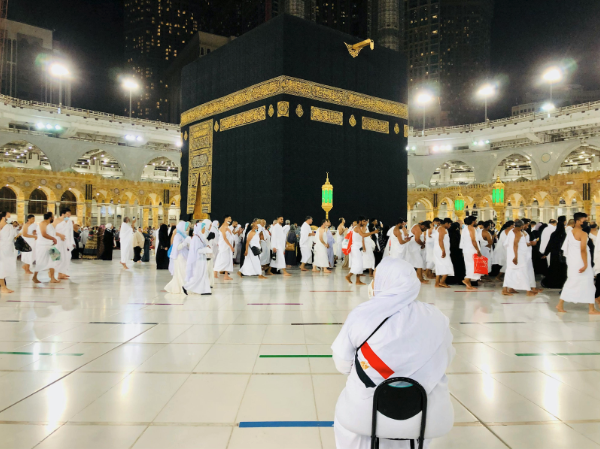Umrah Packing List: The Complete Guide for First-Time Pilgrims

Umrah Packing List: The Complete Guide for First-Time Pilgrims Preparing for Umrah is both exciting and emotional, especially if it is your first time. Once you finalise your travel plan and book your Umrah packages with a trusted agency, the next important step is packing smartly. Having the right items with you ensures a peaceful, […]
How London Muslims Can Prepare Spiritually for Hajj and Umrah

How London Muslims Can Prepare Spiritually for Hajj and Umrah Hajj and Umrah are Islamic pilgrimages to the city of Mecca. Hajj is one of the five pillars of Islam. It is mandatory for every Muslim who is physically and financially able. It takes place only during specific Islamic dates. Hajj involves several key steps, […]
Navigating The Best Times Of Year To Perform Umrah

Navigating The Best Times Of Year To Perform Umrah Umrah gives one the privilege of being a guest of Allah Almighty. One will not refute that it is the peak time for faith revival and spiritual cleansing for Muslims. Thus, every person intending to go on pilgrimage wants to observe the best time to perform […]
How Performing Umrah Can Revive Your Faith?

How Performing Umrah Can Revive Your Faith? Muslims believe that performing Umrah can revive their faith as it contributes to spiritual purification, seeking forgiveness of sins and enables them to build a strong connection with Allah Almighty. Umrah is also a source of expiation of all previous sins, accompanied by the blessings of all worship, […]
How Families Can Save Time & Stress With Umrah Deals

How Families Can Save Time & Stress With Umrah Deals Umrah is one of the most cherished spiritual journeys in the life of a Muslim. Millions of believers gather in front of the holy Kaaba each year to perform this religious activity, seeking blessings from Allah Almighty. However, the planning process can sometimes become overwhelming […]
Islamic Travel Agency is the Best Choice for Your Next Umrah Journey

Islamic Travel Agency is the Best Choice for Your Next Umrah Journey Why Islamic Travel Agency is the Best Choice for Your Next Umrah Journey? Islamic Travel agency is highly expert in all handlings of Umrah journey and considered as best choice for British pilgrims for their Umrah journey. Islamic Travel Agency has set high […]
Why Performing Umrah is a Life-Changing Experience?

Why Performing Umrah is a Life-Changing Experience? Many people experience noticeable change in their personal lives after performing Umrah. Umrah is an achievement for Muslims because it is a way of forgiveness and ultimate path to Jannat. If done with good intentions it totally life changing decision because of the benefits it has. What is […]
The Role of Arabic in Deepening Your Umrah Spiritual Journey

How Reciting Qur’an During Umrah Amplifies Barakah The Role of Arabic in Deepening Your Umrah Spiritual Journey The Arabic language plays a crucial role in all practices and worship of Muslims. All teachings for Muslims to perform rituals of Umrah in the holy Quran and books of hadith are narrated in the Arabic language. If […]
How Reciting Qur’an During Umrah Amplifies Barakah

How Reciting Qur’an During Umrah Amplifies Barakah Umrah is a lesser pilgrimage. Muslims embark on this spiritual journey to purify their souls. The Quran is the message of Allah for people. It teaches us about the purpose of life. Reciting the quran is an honour and brings blessings from Allah. Reciting the quran during Umrah […]
What the Quran Says About Visiting the House of Allah

What the Quran Says About Visiting the House of Allah There is no denying that the Holy Kaaba, the sacred house of Allah Almighty, is the holiest site for Muslims. Millions of Muslims gather yearly at this sacred cubic landmark to fulfill their obligation to the Almighty by performing the Hajj. Many Muslims also gather […]

